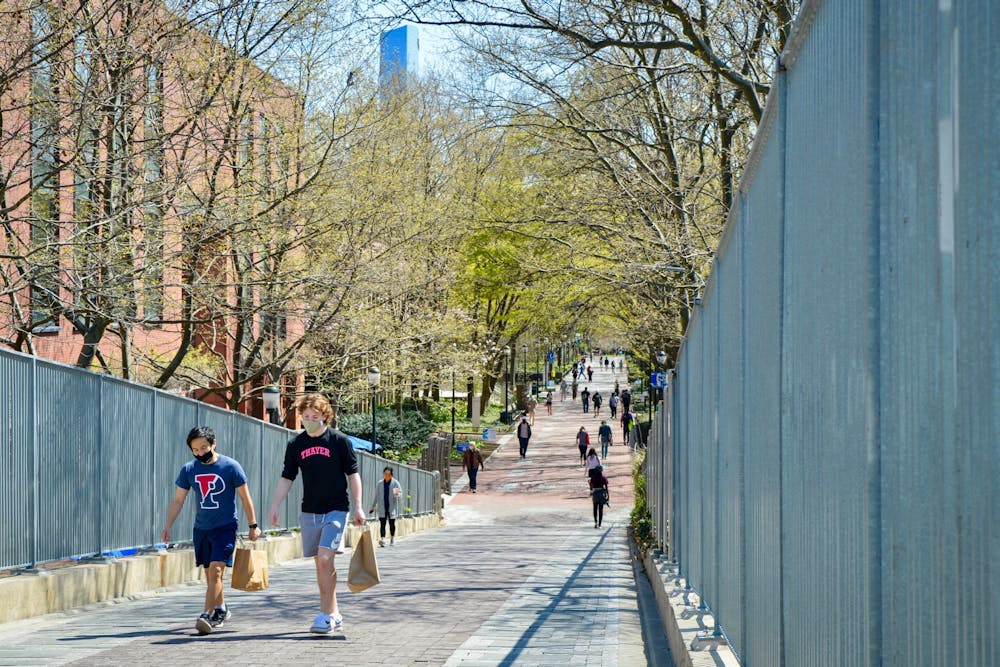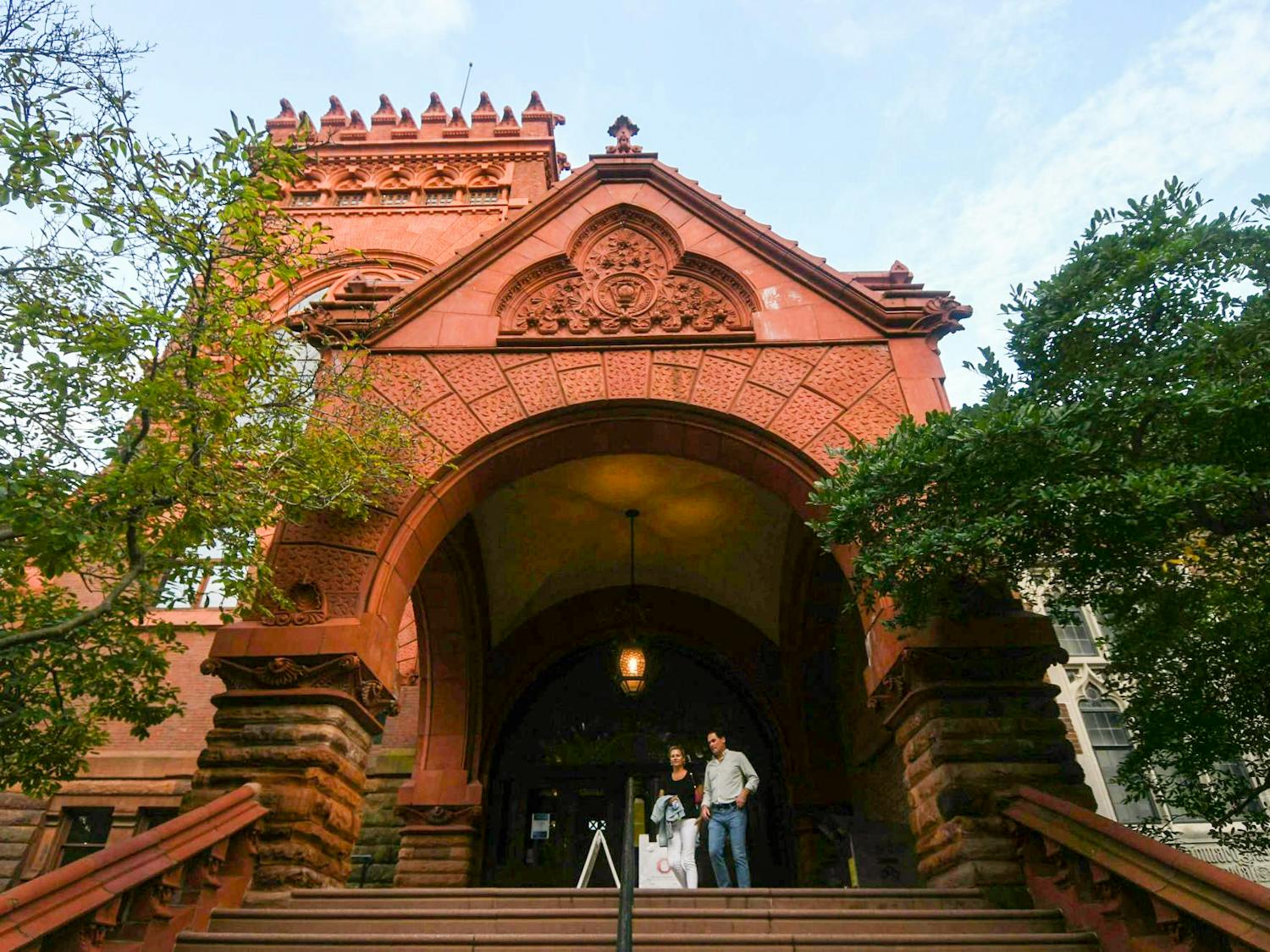Penn's undergraduate COVID-19 case count continued to decrease last week, after a spike in cases following the week of "Spring Stay" from March 14 to March 20.
A total of 28 undergraduate students tested positive for COVID-19 between March 28 and April 3, down from the 32 undergraduate student cases between March 21 and March 27. Administrators called the drop in cases “reassuring,” but urged students to avoid becoming complacent — especially as COVID-19 vaccines become increasingly available — and to continue following public health guidelines, citing concerns about variants that have become more prevalent in the Philadelphia area.
Some of these variants are more resistant to the COVID-19 vaccine, and a small number of fully vaccinated students have tested positive over the past two weeks, further highlighting the importance of following public health guidelines regardless of vaccination status, Chief Wellness Officer Benoit Dubé told The Daily Pennsylvanian last week.
A recent Penn Medicine study identified cases of the B.1.1.7 variant — which at least two Penn students contracted in early February — along with the New York variant, B.1.526, and two different California variants, B.1.427 and B.1.429. The study also found cases similar to variants originating in South Africa, B.1.351, and Brazil, P.1. All six of these have been deemed variants of concern or of interest by experts.
Vaccination rates in the state of Pennsylvania and across the country, however, are on the rise, and Penn is planning to begin vaccinating members of the Penn community at an on-campus COVID-19 vaccination site later this month.
The City of Philadelphia announced on Tuesday that all adults will be eligible to receive the COVID-19 vaccine beginning April 19, almost two weeks earlier than the original date of May 1.
Still, vaccines are not completely effective in preventing the spread of COVID-19 but rather are mainly effective in preventing severe cases, hospitalizations, and deaths. The three vaccines available in the United States — Pfizer-BioNTech, Moderna, and Johnson & Johnson — are all over 85% effective in preventing severe COVID-19 cases.
Dubé told the DP last week that all students — including those who have been fully vaccinated — should continue to follow public health guidelines and continue to wear their masks, wash their hands, socially distance, and socialize outdoors.









